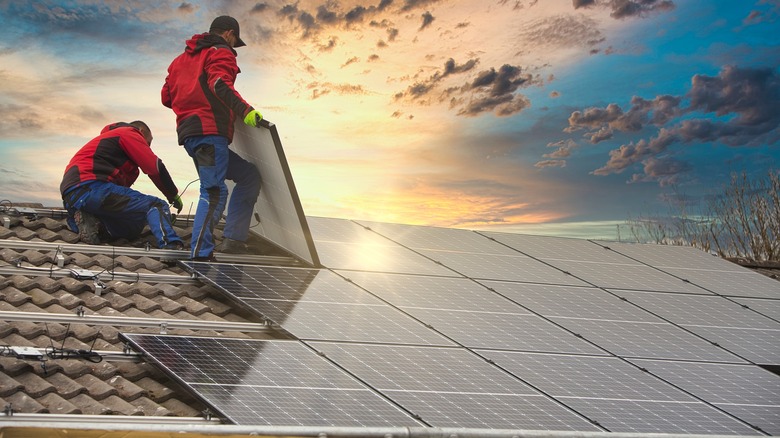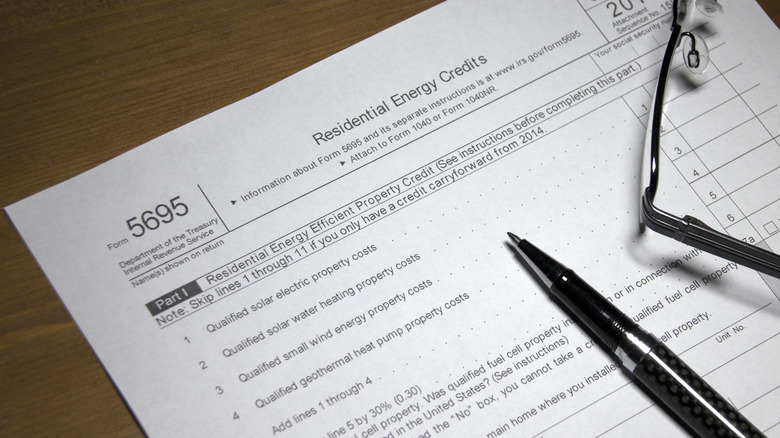Solar Panel Credits 2024: How Much Can You Save And How To See If You Qualify
Solar panels are not inexpensive. Costing anywhere between $15,000 and $20,000, not including the hidden costs of solar panels, this type of installation is usually a significant investment for the home buyer. Additionally, the estimated cost could easily go up based on how many solar panels you need to power your home. That said, although the upfront cost is undeniably high, solar panels work out to be more economical in the long term.
By increasing the value of your home and lowering your electricity consumption, solar panels usually end up paying for themselves in a few years. Furthermore, while the upfront cost can seem like a lot, tax credits, like the federal solar tax credit, can help lessen the financial burden on homeowners.
The federal solar tax credit, also called the Investment Tax Credit (ITC), is essentially something you can claim on your federal taxes if you've had solar panels installed on your residential property. Keep in mind that the solar tax credit is only a credit that reduces your payable tax amount; it is not a deduction or a refund.
The credit can be applied to the cost you incur on the equipment itself as well as the installation. However, if you've done any remodeling or made any structural changes for the sole purpose of installing the panels, those costs will not be covered. Given how the federal solar tax credit can reduce your overall investment, understanding the specifics in terms of how much you can save and the eligibility for this tax credit can help.
How much can you save with the federal solar tax credit?
The federal solar tax credit for 2023 is 30% of the cost of the solar photovoltaic system installed on your property. You can claim this amount when you file your taxes in 2024. So, for instance, if the cost of the equipment and the installation came up to $25,000, your federal tax liability could go down by 30%, i.e., $7,500, thanks to this credit. These considerable savings can go a long way in helping you break even on your investment much earlier.
Although the federal solar tax credit can only be claimed once, you can roll over the balance of the credit to the following year if what you owe the IRS is less than the credit amount. In the example above, if your overall tax liability was only $5,000, you could roll over the remaining $2,500 to claim during the next tax year. If you're eligible to claim the credit, fill out IRS Form 5695 and include it as part of your tax return.
The 30% tax credit value will only apply until 2032. The Inflation Reduction Act, signed in 2022, outlines the federal solar tax credit schedule until 2034. While the credit was increased from 26% to 30% for solar panel installations made between 2022 and 2032, it will decrease to 26% in 2033. For the following year, 2034, the credit will decrease again to 22%.
Eligibility for the federal solar tax credit
One of the things you should know before you install solar panels in your home is whether you are eligible to claim the federal solar tax credit. The credit is only available to people who installed their solar energy systems between January 1, 2017, and December 31, 2034. Keep in mind, however, that you can only claim the tax credit once you're able to turn on the solar system. This means you'll need to have the system inspected and approved to operate before you claim the credit.
The solar panel installation will also have to be located within your residence in the United States. If you installed the solar system in a rental home, you can only claim the tax credit for the period you lived there. The credit can typically be applied to the cost you incur on the equipment and the installation. However, if you've done any remodeling or made any structural changes for the sole purpose of installing the panels, those costs will not be covered.
Another major condition is that you need to own the solar energy system outright or be financing it to claim this tax credit. If you're currently leasing the system, you won't be eligible to claim this credit. You can also benefit from the federal solar tax credit if you purchase an interest in a community solar project located elsewhere, provided that the electricity generated is credited against your home's electricity consumption. Before you claim this credit, make sure also to confirm that the solar panels on your property were an original installation. The credit cannot be claimed if you're using a pre-owned system.


